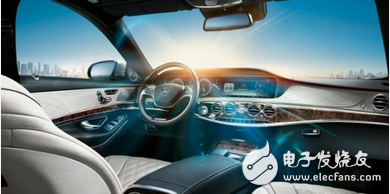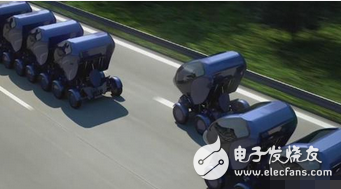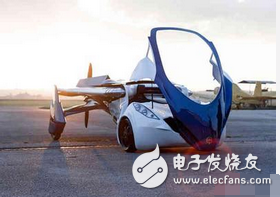A closer look reveals that the current smart car market is very similar to earlier smartphones: every manufacturer wants to have a place. All companies develop their own software, and the side effect is that all hardware is not powerful enough. In the smartphone market, Apple and Google quickly standardized the market, and other vendors became ignorant.
The situation of smart cars is very similar to that of smartphones. All manufacturers are committed to introducing cars that change people's lifestyles and connectivity with other home devices, hoping to have a place in the market. As part of a broader range of smart home markets, smart cars are the “Western Wilderness†of the Internet of Things, and the future is exciting and promising.

Cars can now "talk" to the Internet - but what do they say? Automakers are trying to solve the problem of how to communicate with the Internet and better meet the needs of drivers and passengers, but this problem is far from solved.
Currently, most mainstream car manufacturers have their own car connectivity solutions. To stay competitive, they need it. Broadly speaking, their solutions are almost identical. Early products used touch screen technology, integrated with streaming music, on-board computer diagnostics and basic car control features such as heated seats. Larger car manufacturers have released companion applications that allow users to pre-set cars, open doors and display past trip information.
The most advanced in this regard is Tesla. Tesla offers all of the above features and is beginning to offer some future features. Tesla's beautifully equipped on-board computer display provides a fun and more natural way to enter.
Even with Tesla's demonstration, we are still behind the future direction. Since every car company is developing their own systems, we are still in the “dark ages†– just like the smartphone operating system a few years ago.

Like the previous industry, the smart car industry also has a big problem: fragmentation means that devices can't communicate with each other. We don't have a standardized open framework for automakers to develop hardware when it comes to reference. Developers can't take the time to think about cars and drivers collaborating in a unified way. For the market to mature, this is the biggest missing link.
In short, for smart cars, smart homes and the Internet of Things, we need an "Android" class system. We need to standardize communication between cars, home appliances and home appliances. As standardization begins, we will see – as with other industries in the past, simple human-computer interaction methods and unlimited business opportunities for new market growth.
For example, smart cars will have a major impact in multiple areas. One is the way cars interact with home devices. Depending on location and driving habits, the car will notify home equipment users that they are coming home. It can analyze the current weather conditions and set up the home equipment in advance so that users can have a comfortable environment when they arrive at home, such as turning on heating or air conditioning equipment, adjusting the lighting according to time, preheating the stove, and letting the whole home go home for the user. Be prepared.

The second is the way drivers interact with cars they drive, other cars, and other objects that are bigger. According to user habits, such smart frameworks can know the user's destination and give suggested driving directions based on weather conditions, traffic flow, energy efficiency (especially in the current popularity of electric vehicles).
The car can suggest speed to the user based on external temperature, wind speed/wind direction, surrounding car and driving habits, and user expectations. User expectations may include the highest energy efficiency, the fastest arrival at the destination, or the least crowded road.
The social layer allows users to communicate with other cars around them, automatically integrating social tools such as Instagram and SpoTIfy to share relevant information with the outside world. Such systems can also advise users when to turn off or turn on more complex systems such as autonomous driving.
But the good news is that these “future fan†scenes are not as far away from us as they used to be. Fortunately, some mainstream automakers and well-funded startups are developing such systems and have already launched early products on the market.
Many teams are developing smart car solutions, and the winners will soon surface. The winner will receive huge revenues because connectivity will replace the engine as one of the most important indicators of the car.
A WIFI Dongle is a pocket-size device that connects to your smartphone, tablet or laptop and allows you to access the internet while you`re traveling. It is portable, easy to carry, convenient to use, and very affordable.
150Mbps Wifi Dongle,4G Dongle,Oem Dongle,LTE Wifi Dongle
Shenhzhen Tongheng Weichuang Technology Co., Ltd , https://www.thwclte.com
![<?echo $_SERVER['SERVER_NAME'];?>](/template/twentyseventeen/skin/images/header.jpg)